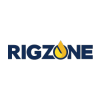1. Educational Qualifications
- Bachelor's Degree in Civil Engineering : A fundamental requirement, often from an accredited university.
- Master's Degree (Preferred) : A master's degree in civil engineering, Structural Engineering, or a related field can be advantageous, especially for senior roles.
- Professional Engineer (PE) License : This is often a critical requirement. Having a PE license indicates that the engineer is qualified to sign off on plans and is recognized as a professional engineer.
2. Professional Experience
- Experience in Civil Engineering : Typically, 5-10+ years of experience in civil engineering, with several years focusing on solar or renewable energy projects.
- Experience in Solar Design : Hands-on experience with the civil design aspects of solar power installations, including site assessments, foundation design, grading, stormwater management, and permitting.
- Project Management : Experience managing complex projects, including budgeting, scheduling, and coordination with other engineering disciplines (electrical, mechanical, environmental).
- Experience with Large-scale Solar Projects : Experience with utility-scale solar farms or large commercial solar installations is highly beneficial.
3. Technical Skills
- Solar Design Software : Proficiency in solar design and simulation software such as AutoCAD, PVsyst, Helioscope, or similar tools.
- Structural Analysis Software : Experience with tools like STAAD Pro, SAP2000, or ETABS for structural analysis and design.
- Civil Design Software : Proficiency with civil engineering design tools like Civil 3D, Revit, or similar software.
- Geotechnical Analysis : Understanding of geotechnical engineering principles, especially as they relate to solar farm installations, foundation design, and soil analysis.
- Knowledge of Solar Technology : Understanding of different solar technologies (e.g., PV, CSP), mounting systems (fixed tilt, tracking systems), and integration with civil infrastructure. Pile reveal mapping.
4. Regulatory and Industry Knowledge
- Knowledge of Building Codes and Standards : Familiarity with relevant building codes (e.g., ASCE, AISC) and solar industry standards.
- Permitting and Compliance : Experience navigating local, state, and federal permitting processes for solar installations, including environmental regulations.
- Health and Safety Standards : Understanding of occupational safety regulations, especially concerning construction and solar installations.
5. Soft Skills
- Project Management Skills : Ability to lead and coordinate large projects, manage timelines, budgets, and resources effectively.
- Communication Skills : Strong written and verbal communication skills for preparing reports, presenting to stakeholders, and coordinating with cross-functional teams.
- Problem-solving Skills : Ability to address complex engineering challenges and find innovative solutions in solar design and construction.
- Team Leadership : Experience in leading engineering teams, mentoring junior engineers, and collaborating with multidisciplinary teams.
6. Additional Certifications (Preferred)
- LEED Accreditation : Knowledge of sustainable design practices can be beneficial.
- Solar PV Certification : Certifications such as NABCEP (North American Board of Certified Energy Practitioners) can be a plus, demonstrating expertise in solar PV systems.
- Project Management Certification : PMP (Project Management Professional) or similar certifications can be beneficial for managing complex solar projects.
Example Job Description
Responsibilities :
- Lead the civil design and engineering efforts for solar power projects.
- Conduct site assessments and feasibility studies.
- Design site layouts, foundations, grading plans, and stormwater management systems.
- Ensure compliance with building codes, zoning regulations, and environmental laws.
- Coordinate with other engineering disciplines (electrical, mechanical) and stakeholders.
- Prepare and review construction documents, including drawings and specifications.
18 hours ago








